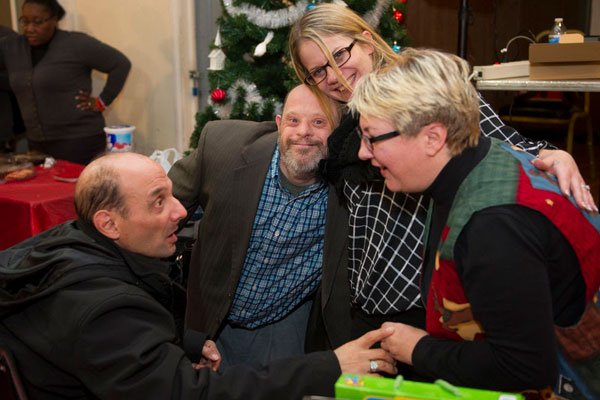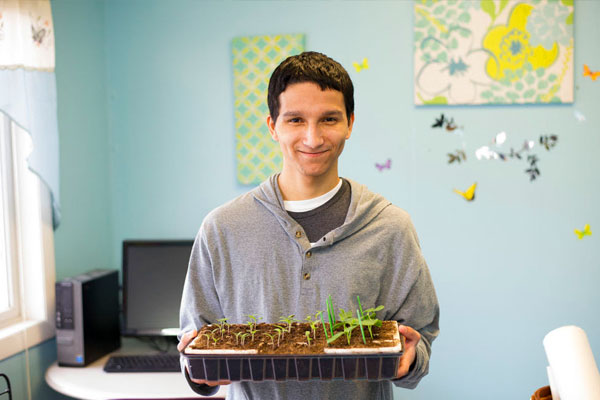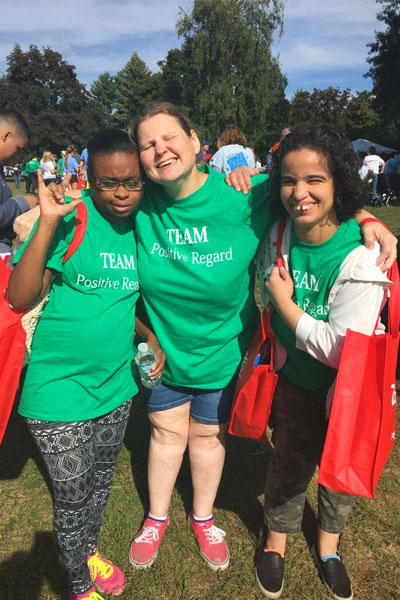31 Oct HUB Community Spotlight: Get to Know Guidewire
At HUB International, one of our top priorities is to be actively engaged in the communities we serve. That’s why we choose to support a variety of local organizations and events across Massachusetts through volunteer work and charitable donations.
However, we want to do even more. So, to help promote the incredible work being done in our neighborhoods by these important non-profits, we’ve created a Spotlight Series where we highlight the work of one of these vital organizations each month.
“By providing the public with more information about these non profits, we hope that people will not only gain a better understanding of the valuable work they are doing, but also see an entirely different facet of HUB International,” President and CEO Bill Trudeau says. “Community involvement has always been, and will always be, part of our DNA.”
 Today, we want to introduce you to one of the outstanding groups we partner with, Guidewire, through the eyes of the company’s President and CEO, Binaya Basnet. HUB International was lucky enough to have the opportunity to speak directly with Mr. Basnet and to learn more about the history, philosophy and critical services this human services organization provides to individuals with disabilities.
Today, we want to introduce you to one of the outstanding groups we partner with, Guidewire, through the eyes of the company’s President and CEO, Binaya Basnet. HUB International was lucky enough to have the opportunity to speak directly with Mr. Basnet and to learn more about the history, philosophy and critical services this human services organization provides to individuals with disabilities.
HUB Q&A with Binaya Basnet, President & CEO of Guidewire
ICNE: Since Guidewire’s inception in 1982, how has it grown and changed as a human service agency?
Mr. Basnet: Guidewire, Inc. was incorporated on December 27, 1982 as a 501(c) 3 non-profit human service agency originally based in Springfield, Massachusetts. The company was established with the purpose of providing community-based supports for adults with intellectual disabilities and, at that time, we offered residential and day services to individuals with developmental disabilities, autism and other psychiatric conditions.
We’ve done a lot of growing since then. In the 90s, we expanded our services to the Berkshires and, in 2003, we opened a community-based day support program called “Solutions”. Then, in 2007, the agency expanded again to provide individuals with additional support, such as respite services, young adults and youth services (for ages 18-22), autism services, a dementia program, and complex medical services.
Today, Guidewire offers 46 programs, serving over 135 individuals. We also either own or lease 45 homes in residential neighborhoods in the greater Springfield, Holyoke and Pittsfield areas that serve as residential support for the individuals we care for. Ninety-five percent of Guidewire’s resources go to 24/7 community-based residential support programs that provide a stable and secure environment in which individuals can exercise their independence. We also provide residential support to several individuals under the Department of Children and Families. In addition, we continue to operate a day program in Pittsfield Area.
Despite all of the changes our organization has gone through, we have never lost sight of the cornerstones of our organization – unconditional commitment, perseverance and creative problem-solving. This philosophy has proven to be highly effective throughout the years and allowed our agency to focus on the inherent value of the person, regardless of diagnosis or personal history.
ICNE: One of the values Guidewire makes clear in their mission is, “Acceptance is the only option.” Could you tell me more about what this means?
 Mr. Basnet: The idea behind this value is that we will commit ourselves to making extraordinary efforts on behalf of all individuals. We believe that individuals who display behaviors that have been deemed problematic have the potential to change these behaviors and become more comfortable in their daily lives. In order to facilitate this change, we have master’s level clinicians on staff, including board-certified behavior analysts, who are highly skilled in designing appropriate behavior management plans. We also have a consulting doctoral-level behavior analyst available to support our clinical team and help them with their approach for specific individuals in our care. Every staff member at Guidewire has been trained in behavior management, and our nursing staff works with the individual’s medical professionals to manage any and all health care needs.
Mr. Basnet: The idea behind this value is that we will commit ourselves to making extraordinary efforts on behalf of all individuals. We believe that individuals who display behaviors that have been deemed problematic have the potential to change these behaviors and become more comfortable in their daily lives. In order to facilitate this change, we have master’s level clinicians on staff, including board-certified behavior analysts, who are highly skilled in designing appropriate behavior management plans. We also have a consulting doctoral-level behavior analyst available to support our clinical team and help them with their approach for specific individuals in our care. Every staff member at Guidewire has been trained in behavior management, and our nursing staff works with the individual’s medical professionals to manage any and all health care needs.
As a result of our approach, Guidewire has established a strong reputation for serving individuals who, at times, exhibit challenging behaviors and have been unsuccessful in alternative settings. We attribute this success to our commitment to discovering each individual’s strengths and capacities, and helping each client learn and demonstrate appropriate behavior.
ICNE: In what ways are the individuals you serve integrated into the communities where they live?
Mr. Basnet: Making sure that our individuals assimilate into the communities they live in starts with the Guidewire residences, themselves. These homes are carefully selected and are primarily located in established suburban neighborhoods in greater Western Massachusetts. The residences are chosen for their ease of access to public transportation, retail diversity and other community assets. Additionally, we try to place individuals in residences in their preferred location, whether they prefer to be in a specific community or want to be close to a relative. A high level of family interaction and involvement, if possible, can be critical for a successful transition.
We also encourage individuals to attend religious services, patronize local restaurants, shop on their own for both necessities and discretionary items, join fitness and social organizations, and travel to recreational destinations. One of the clear goals of our organization is to enable individuals in our program to live and thrive in their community.
ICNE: How does Guidewire accommodate the choices and preferences of the individuals they serve?
Mr. Basnet: In order for individuals to really feel that they belong in a community, it’s critical that we take into account their unique preferences. So, we regularly request feedback from individuals in the course of providing our support programs. In the event that an individual has communication challenges – and even sometimes when they don’t – it’s often a guardian or family member who will share their knowledge of the individual’s needs and desires with our staff.
Close attention is paid to the reactions of our individuals to properly ascertain their preferences. Many of our individuals have chosen to attend Red Sox games, concerts, and local car shows. Some have volunteered at animal shelters and food banks. All of these activities have been the choice of the person participating. Individuals are encouraged to make their own choices, whether for food, clothes, or personal goals they want to achieve. We want our individuals to feel that they have control over their own decisions, and more important, their lives.
ICNE: Guidewire uses a team approach to provide everything from nursing services to behavioral support. Why is a team approach part of your philosophy?
Mr. Basnet: We have discovered that problem-solving is more successful by employing a team approach, so we have implemented a corporate culture which employs an attitude of “we” rather than “I” when it comes to tackling tough issues.
Many behavioral challenges can be rooted in underlying medical conditions, specific environmental circumstances or even negative interaction with peers. By inviting an individual’s entire team to the table to address a serious matter, all potential causes can be identified and addressed in a structured, uniform manner, which often results in a better outcome for the individual.
Over time, individuals come to know and trust all members of their team and have ample opportunities to share both positive and negative thoughts with team members. From a professional perspective, the more eyes and ears we have addressing problems, the more likely we are to find lasting solutions. Additionally, this team approach cultivates stronger professional relationships and friendships among Guidewire’s staff, which, ultimately, benefits the individuals we serve as well.
ICNE: How has HUB International been involved with Guidewire over the years?
 Mr. Basnet: HUB International has been a wonderful partner in a business relationship that has spanned more than a decade. They offer our company superior customer service, are very responsive to our questions and concerns, and provide workable solutions to our unique insurance-related challenges. Specifically, in the Business and Benefits Group, we’ve worked with Shemeka Browne-Pohlman, who is extremely knowledgeable about the Affordable Care Act and has assisted us with compliance matters, and Ben Garvey, who has been instrumental in helping us put together driver training resources and our new “How am I driving?” bumper sticker program. These are just a few of the people that have been there to support us, but really everyone at HUB International always seems eager to learn the details of our operation so that they can continue to serve our needs now and in the future. Bill Trudeau and his entire HUB International team have been, and will continue to be, a valuable and trusted resource as we continue our mission at Guidewire.
Mr. Basnet: HUB International has been a wonderful partner in a business relationship that has spanned more than a decade. They offer our company superior customer service, are very responsive to our questions and concerns, and provide workable solutions to our unique insurance-related challenges. Specifically, in the Business and Benefits Group, we’ve worked with Shemeka Browne-Pohlman, who is extremely knowledgeable about the Affordable Care Act and has assisted us with compliance matters, and Ben Garvey, who has been instrumental in helping us put together driver training resources and our new “How am I driving?” bumper sticker program. These are just a few of the people that have been there to support us, but really everyone at HUB International always seems eager to learn the details of our operation so that they can continue to serve our needs now and in the future. Bill Trudeau and his entire HUB International team have been, and will continue to be, a valuable and trusted resource as we continue our mission at Guidewire.
ICNE: What is the best way for members of our community to get involved with Guidewire?
Mr. Basnet: It’s easy to support Guidewire’s mission. One way is to participate in a social or recreational event in your area. These activities are organized by our events committee, and have included holiday parties, talent shows, and cookouts. Of course, we also welcome general donations. People can find out about events happening near them or make a donation by going to our website, guidewireinc.org, or by calling our Springfield office at (413) 733-6100 or our Berkshire office at (413) 443-3295.
We hope that you have enjoyed reading our spotlight on Guidewire. Next month, HUB International will introduce you to Soldier On, a nonprofit organization committed to ending veteran homelessness. In the meanwhile, if you’d like to read about another incredible organization doing great work in our community, check out last month’s spotlight on Link to Libraries.


No Comments